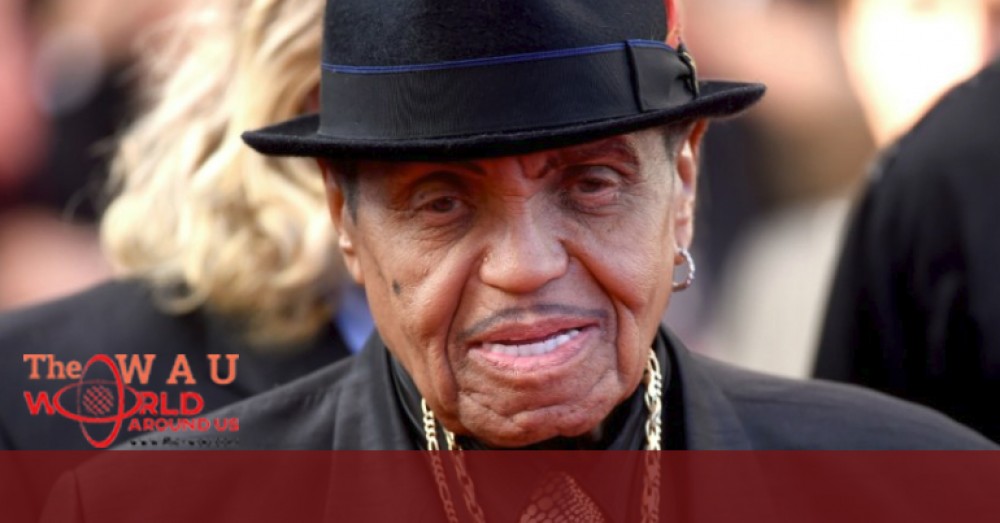Joseph Jackson, a steelworker from Gary, Indiana, who forged a musical dynasty by launching the careers of the Jackson 5, his son Michael Jackson and daughter Janet Jackson, but whose legacy was tarnished when some of his children accused him of exploitation and abusive behavior, died June 27 at a hospice in Las Vegas. He was 89.
The death was confirmed by Raymone Bain, Michael Jackson's former spokesperson, who said she spoke to Randy Jackson, Joseph Jackson's son. The cause was reportedly pancreatic cancer.
Jackson was an unlikely starmaker who demanded nothing less than perfection as he drove his children toward stardom. To a remarkable degree, he succeeded: All nine of his children would have a hand in producing major hit records, and Michael Jackson would become the most popular recording artist of the 1980s.
Collectively, the Jacksons may have been the most prominent family in pop-music history, but their fame came at the cost of family feuds, lurid accusations and an unending stream of tabloid headlines. Over time, nearly all the children rebelled against the brutal manner of their father, who was known to some as Joe but preferred to be called Joseph, even by his children.
In his youth, Jackson had ambitions of being a marquee name in his own right. He first aspired to be a boxer, then in the early 1950s played guitar in a rhythm-and-blues band that never tasted success.
He found work in a steel mill and gradually shifted his show business dreams toward his children. As the family grew to nine children - an infant son died in 1957 - they all occupied a tiny house on, as fate would have it, Jackson Street.
Coming home from work one night in the early 1960s, Jackson discovered that his sons had broken a string on his guitar. He angrily asked Tito, not yet 10, to prove that he knew how to play the guitar.
Jackson recognized that his sons had talent, and he soon began to groom them into a musical act. By 1962, Jackie, Tito and Jermaine were appearing at talent shows as the Jackson Brothers.
"When I found out that my kids were interested in becoming entertainers, I really went to work with them," Jackson told Time magazine in 1984. "I rehearsed them about three years before I turned them loose. I saw that after they became better, they enjoyed it more."
Two younger brothers, Marlon and Michael, watched the after-school rehearsals, learning each tune and dance step, and before long they were part of the group as well.
The Jackson Brothers became the Jackson 5, and it soon became obvious that 8-year-old Michael, with his buoyant voice and polished stage presence, was unusually talented.
Jackson watched over his boys' progress with a mixture of pride and discipline.
"We'd perform for him, and he'd critique us," Michael Jackson wrote in Moonwalk, his 1988 autobiography. "If you messed up, you got hit, sometimes with a belt, sometimes with a switch."
Jackson was hardest on Michael, giving him the demeaning nickname of "Big Nose." The father-son relationship became more and more volatile.
"I'd take a shoe and throw it at him, or I'd just fight back, swinging my fists," Michael Jackson wrote. "That's why I got it more than all my brothers combined. I would fight back, and my father would kill me, just tear me up."
Jackson booked his sons into nightclubs in Gary and nearby Chicago, where they sometimes worked on a bill with strippers and raunchy comedians, to the distress of their mother, Katherine, a member of the Jehovah's Witnesses.
In 1967, Jackson drove his sons to New York in a Volkswagen van to compete in amateur night at the Apollo, the Harlem theater long known as a springboard for emerging talent. Performing versions of tunes by James Brown and other soul artists, the Jackson 5 won first prize. Before long, they were opening for the Temptations and Smokey Robinson and the Miracles and appearing on the nationwide "chitlin' circuit" before largely black audiences.
After his sons cut a record on a small local label in 1968, Jackson signed a contract with Motown, the hitmaking record company from Detroit. Motown founder Berry Gordy put his top songwriters and musicians to work, producing a kind of music dubbed "bubblegum soul."
In 1969 and 1970, the Jackson 5 scored four straight No. 1 hits, with I Want You Back, ABC, The Love You Save and I'll Be There. The Volkswagen van was gone, and the brothers were driven in limousines from one television studio to another.
As manager, Jackson guided their every move. He resettled the family in California and put his other children on stage, with daughters Maureen ("Rebbie"), La Toya and Janet performing in Las Vegas in the 1970s, along with the family's youngest son, Randy. Jackson repeatedly clashed with Gordy over contract terms, and in 1975 he negotiated a deal with Epic Records. The new contract offered greater artistic freedom, boosted the family's royalties by as much as 500 percent and paid Jackson substantial fees as manager.
...[ Continue to next page ]
Share This Post















